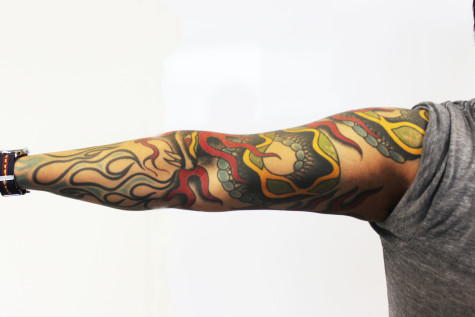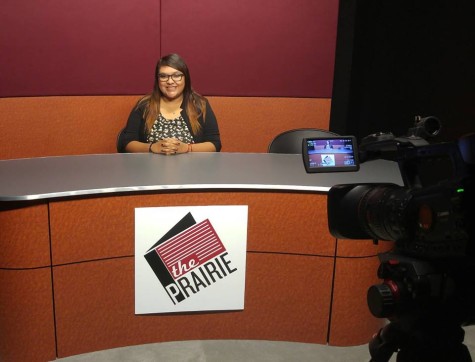WT talks tattoos, their perception in society
November 19, 2015
Self-expression is as old as the human race itself. Each day we wake, and whether it be subconscious or not, the clothes we don and the music we blast, are representations of self. Fads and fashions will come and go, but there are a handful of creative outlets that leave a much more lasting and meaningful mark.
Tattoos have had a place in American history as early as the late eighteenth century. At the time, tattoos were designed to identify sailors in order to avoid impressment by the British Royal Navy. Today, tattoos are prolific on a global scale; from the boardroom to the classroom, inked skin is being seen more and more as the culture shifts. But even as tattoos become more mainstream, a stigma remains that harkens back to the days when tattoos were common on gang members and criminals.
“For me personally, there was always a stigma surrounding tattoos in Texas. I always felt like I needed to hide my tattoos or cover them up where other people couldn’t see them,” Megan Moore, former editor of The Prairie, and current graduate student at Boston University, said. “In Boston, it’s completely different. I don’t have to be as concerned with the way people feel about tattoos because I think they are a little more open minded when it comes to self-expression. I am still cautious though. I know that tattoos can be distracting and I don’t want that to take away from my ability to do my job. So, if I know I’m going to interview a person that might find tattoos offensive or see them in a negative light, I make sure to wear something that hides my visible tattoos. I want the people I interview to connect with me and feel like there’s a sense of openness in the way we communicate, so if I have to cover my tattoos to establish that relationship I’m going to do it.”
The conservative leanings of those in the panhandle, while not totally accepting of body art, do seem to be shifting toward acceptance. Tattoos are becoming more prevalent everywhere we look and professionalism is always on the mind as more and more people consider the placement of their tattoos and the implications they may have on their work environment. Across the board, viewpoints are shifting.
“Do I think it’s changing? Yes! Slowly. And we will get there,” Dr. Maxine De Butte, assistant professor of psychology, said. “I like to show my students my tattoos to show them that, and I am very passionate about this, that tattoos don’t change my abilities, my qualities and the fact that I am a good professor. A teacher is a teacher. Having a tattoo is not going to change my abilities. But for me, it is a form of self-expression. I like to look at it as art. Why not have your body as a canvas? I’ve got some very beautiful pieces that I am very proud of. ”
At its core, getting a tattoo is about self-expression, yes, but it is also about story telling. Tattoos spark conversation and pique an interest. Tattoos allow the individual to share a lifetime of stories without saying a word. They allow us to keep alive the memories we cherish and hold dear to our hearts.
“I’ve never really thought of tattoos as a way of self-expression, but ways of communication,” Holly Nelson, senior health sciences major, said. “The one on my foot says ‘blessed’. My grandmother passed away March 2013. She was the most influential person in my life, and she was constantly telling me, “Don’t ever forget how blessed I am during tough times.”

Reporter Jonathan Espinoza shows us his tattoos. He has more on his other arm and on both legs



